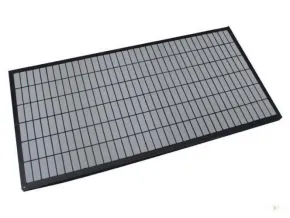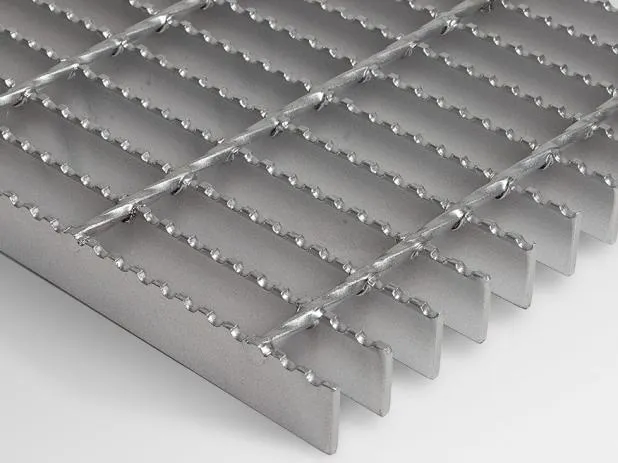- Industrial zone, South of Anping Town, Hengshui, Hebei, China.
- sales@hfpetromesh.com
- +86-18931809706
2 月 . 08, 2025 00:49
Back to list
metal walkway grates
Navigating through industrial environments safely and efficiently is crucial. Metal walkway grates play a vital role in various sectors, from construction sites to manufacturing plants, offering both functionality and safety. With growing demands for robust and reliable infrastructure solutions, understanding the value of metal walkway grates can make all the difference in selecting the right product for your needs.
Furthermore, from the perspective of maintenance and cost-efficiency, metal walkway grates provide significant advantages over other materials. The longevity of metal grates means that once installed, they require minimal upkeep, saving both time and maintenance costs. Unlike wood or plastic alternatives, metal grates do not warp or degrade quickly, making them a cost-effective choice in the long term. This reliability in performance is a key factor why industries trust metal grates for challenging environments. In terms of sustainability, many manufacturers are now opting for recyclable materials, contributing to eco-friendly practices. Metal grates can often be recycled at the end of their lifecycle, thus reducing environmental impact and supporting sustainable development goals. This evolution in manufacturing processes not only benefits the environment but also boosts the grates' appeal to environmentally-conscious companies looking to reduce their ecological footprint. When consulting with industry experts, it's clear that the right selection of metal walkway grates can vastly improve the operational efficiency of a site. Experts advise performing a comprehensive site assessment to determine the specific requirements in terms of load-bearing capacity, exposure to elements, and traffic volume. Such expertise ensures that the grates selected are fit for purpose, enhancing both safety and operational flow. In conclusion, metal walkway grates offer a reliable and efficient solution for safe pedestrian traffic in industrial settings. Their proven experience in enhancing workplace safety, backed by expert design and authoritative manufacturing processes, makes them a trusted option. For companies serious about integrating safe and durable flooring solutions into their infrastructure, metal walkway grates stand out as a wise investment. By aligning with manufacturers who prioritize quality and sustainability, industries can enjoy long-term benefits and trust in the performance of their walkway systems.


Furthermore, from the perspective of maintenance and cost-efficiency, metal walkway grates provide significant advantages over other materials. The longevity of metal grates means that once installed, they require minimal upkeep, saving both time and maintenance costs. Unlike wood or plastic alternatives, metal grates do not warp or degrade quickly, making them a cost-effective choice in the long term. This reliability in performance is a key factor why industries trust metal grates for challenging environments. In terms of sustainability, many manufacturers are now opting for recyclable materials, contributing to eco-friendly practices. Metal grates can often be recycled at the end of their lifecycle, thus reducing environmental impact and supporting sustainable development goals. This evolution in manufacturing processes not only benefits the environment but also boosts the grates' appeal to environmentally-conscious companies looking to reduce their ecological footprint. When consulting with industry experts, it's clear that the right selection of metal walkway grates can vastly improve the operational efficiency of a site. Experts advise performing a comprehensive site assessment to determine the specific requirements in terms of load-bearing capacity, exposure to elements, and traffic volume. Such expertise ensures that the grates selected are fit for purpose, enhancing both safety and operational flow. In conclusion, metal walkway grates offer a reliable and efficient solution for safe pedestrian traffic in industrial settings. Their proven experience in enhancing workplace safety, backed by expert design and authoritative manufacturing processes, makes them a trusted option. For companies serious about integrating safe and durable flooring solutions into their infrastructure, metal walkway grates stand out as a wise investment. By aligning with manufacturers who prioritize quality and sustainability, industries can enjoy long-term benefits and trust in the performance of their walkway systems.
Share
Prev:
Next:
Latest news
-
The Power of Pyramid Shaker Screen - A 3-Dimensional SolutionNewsOct.24,2024
-
Exploring the Versatility and Durability of Steel GratingNewsOct.24,2024
-
Revolutionizing Drilling Efficiency with Steel Frame Shaker Screens for Mud Shale ShakersNewsOct.24,2024
-
Potential of Shale Shaker ScreensNewsOct.24,2024
-
Offshore Pipeline Counterweight Welded Mesh - Reinforced Mesh in Marine EngineeringNewsOct.24,2024
-
Revolutionizing Offshore Pipeline Stability with Concrete Weight Coating MeshNewsOct.24,2024
